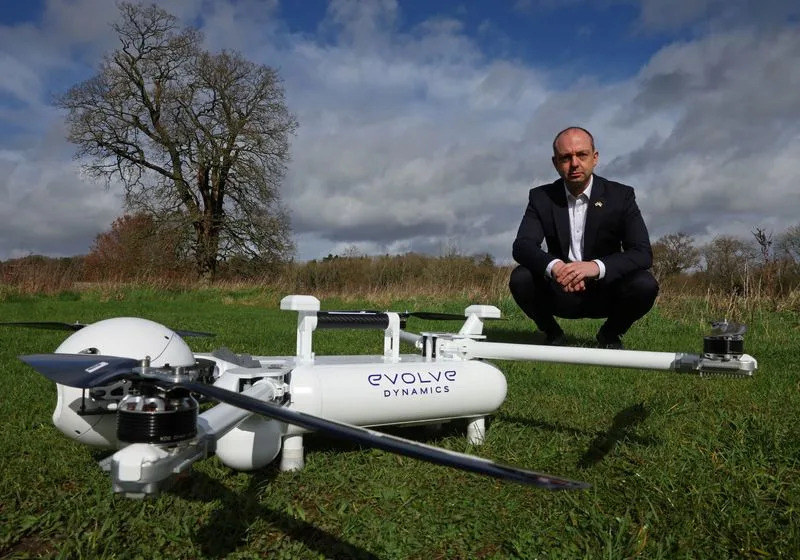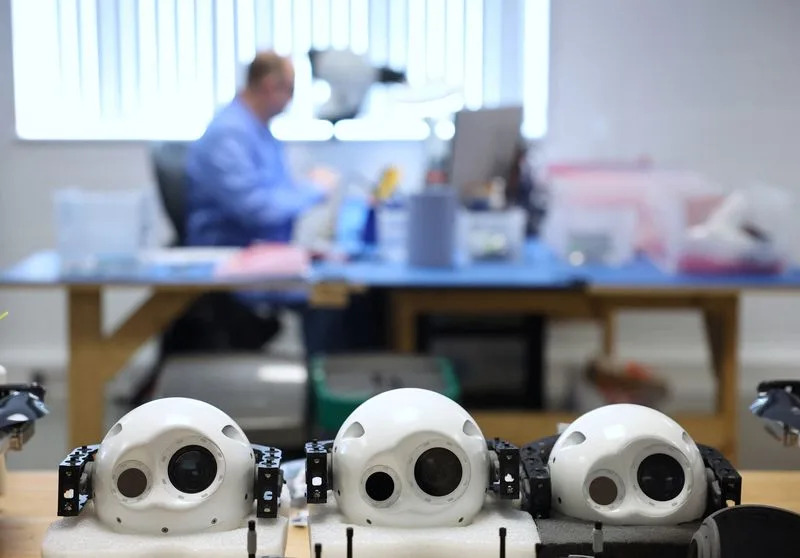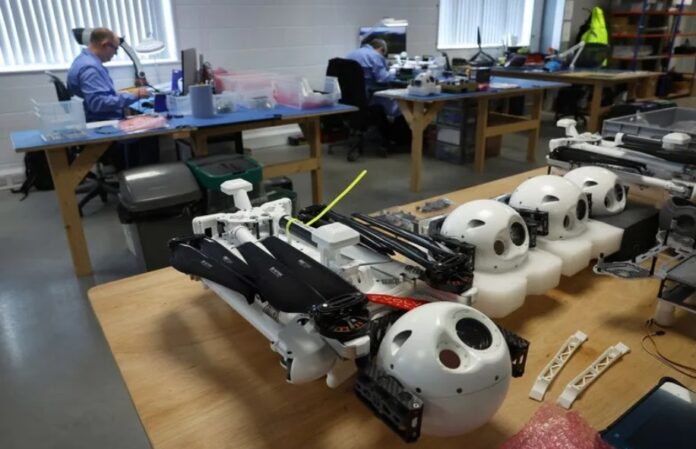“It’s a constant ping-pong game between adversaries,” said Mike Dewhirst, chief executive of Evolve Dynamics, who estimates there have been 85 upgrades made to the company’s Sky Mantis drones over the last two-and-a-half years.
Britain, a staunch ally of Kyiv since Russia launched its full-scale invasion in February 2022, said it was the largest supplier of drones to Ukraine, and is working with Latvia to lead a European coalition to step up production.
Other allies, such as Sweden, the Netherlands and Norway, have also provided Ukraine with combat drones.
Ukraine has nurtured its own private military startups to innovate and build up their domestic industry as the war enters its third year.
In total, there are now about 200 dronemakers in Ukraine and the Strategic Industries Ministry has said the country could make as many as 2 million drones this year.
With Evolve Dynamics, whose reconnaissance drones in Ukraine spy on enemy movements, military units receive parts and software updates directly from the company, allowing them, where possible, to make the changes themselves.
“We’re adding technology to existing drones, modifying them. It might be a software change, a hardware change,” Dewhirst said.
RAPID CHANGES ON THE BATTLEFIELD
Some military experts said immediate communication between defence companies and soldiers may become a more common feature of warfare given the rapid technological innovation.
The trend could have implications for everything from procurement to training.
“The technology is moving very quickly. I would say maybe a six week learning cycle on the battlefield,” said Nick Reynolds, Research Fellow in Land Warfare at the Royal United Services Institute (RUSI), a UK-based defence think-tank.
“Our procurement systems are not optimised for this.”
Last month, a military unit in Ukraine asked Evolve Dynamics to make changes to its technology to make it safer for the pilot.
Working at the British site adorned with Ukrainian flags and messages of thanks from soldiers, staff worked out how to separate a drone’s radio box from its control.
Having sent instructions, the military unit were able to adopt the change within 24 hours of the request.
Dewhirst, who travels to Ukraine each month, decided to fund the modification after hearing soldiers were going to pay for it themselves. Drone units in Ukraine often pay for their own equipment through private means or crowd-funding.
Dewhirst founded the company in 2014 when he was working with software engineers in Kyiv for a digital marketing start-up.
Evolve Dynamics now has about 100 Sky Mantis surveillance drones flying in Ukraine, making it one of between five and 10 British significant suppliers of drones to Ukraine, the company said.
Britain has pledged to spend 325 million pounds ($416 million) to send 10,000 drones to Ukraine this year, and Evolve Dynamics hopes to win more of that work.
The privately owned company has supplied Britain’s Royal Navy and some police forces, along with global oil and gas and wind turbine companies.







